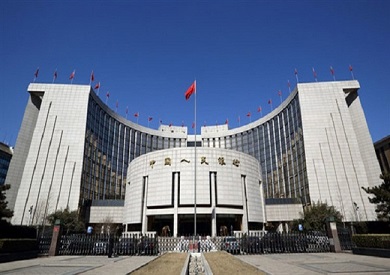The people’s Bank of China (PBOC) unexpectedly decided to cut the key interest rate by the largest percentage since 2020 in order to boost the growth of the country’s economy, which is facing new risks as a result of the ongoing real estate crisis and weak consumer spending.
On Tuesday, the bank announced a reduction in interest on one-year loans, or medium-term lending mechanism, by 15 basis points to 2.5%, the second reduction in interest since last June.
15 analysts polled by Bloomberg News were of the opinion that they expected, with one exception, to keep the benefit unchanged. The central bank also reduced the interest rate on the short-term lending mechanism by 10 basis points.
Meanwhile, data from China’s National Bureau of statistics on Tuesday showed industrial output in the world’s second-largest economy grew by 3.7% annually last month.
At the same time, industrial output grew at an annual rate of 3.8% during the first seven months of this year.
Industrial output is used to measure the activity of enterprises whose total turnover of their main activity is at least 20 billion yuan (2.79 million dollars) per year.
On the other hand, separate data from the statistics bureau showed that the output of the service sector in China over the past month grew by 5.7% per annum.
The sector’s output also increased during the first seven months of this year by 8.3% annually.
Official data published today showed that retail sales in China continued to grow in July.
China’s National Bureau of Statistics reported that retail sales last month increased by 2.5% year-on-year to about 3.68 trillion yuan (512.22 billion dollars), while sales during the first seven months of this year as a whole increased by 7.3% year-on-year.
The statistics bureau said that the consumer market continues to recover and consumer services are growing rapidly.
Fu lingzhui, a spokesman for the statistics bureau, said that domestic demand is driving growth and consumer services such as summer tourism are growing significantly and provide important support for consumption growth.








 GOOGL
GOOGL  AMZN
AMZN  MET
MET  T
T  WPM
WPM  DM
DM  SVM
SVM  CMC
CMC  HKDUSD=X
HKDUSD=X  BABA
BABA